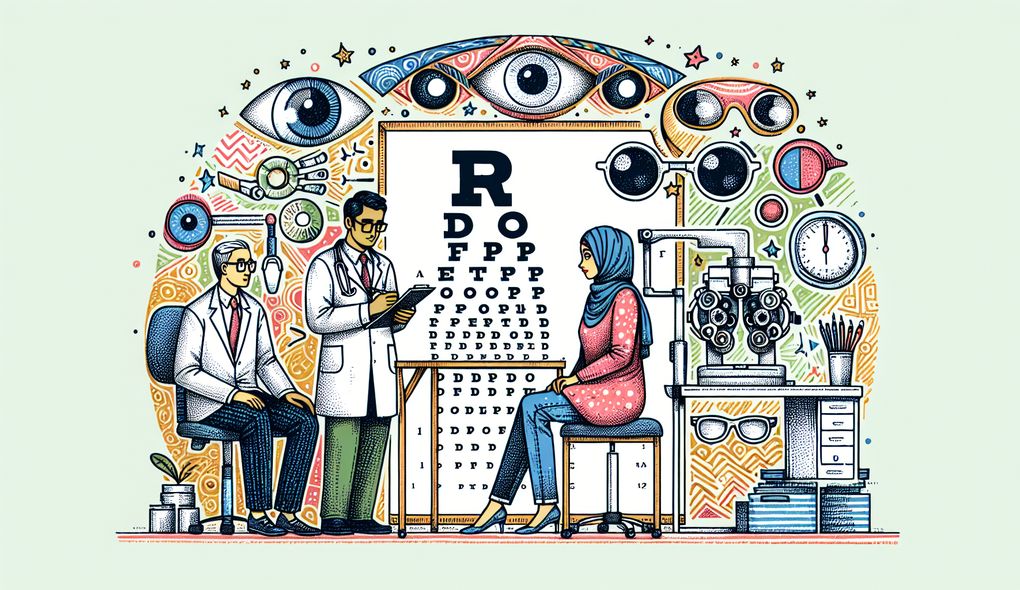How do you prioritize patient education and advocacy in your practice?
SENIOR LEVEL

Sample answer to the question:
In my practice, I prioritize patient education and advocacy by taking the time to thoroughly explain their eye conditions, treatment options, and the importance of preventive care. I actively listen to their concerns and address any questions they may have. Additionally, I provide educational materials and resources to help patients better understand their eye health. When it comes to advocacy, I advocate for my patients by staying updated on the latest developments in optometric practices and procedures. This allows me to provide them with the best possible care and ensure that their needs are met.
Here is a more solid answer:
In my practice, patient education and advocacy are at the core of my approach. During consultations, I take the time to listen to my patients, understand their needs and concerns, and address them in an empathetic and informative manner. I prioritize patient education by explaining their eye conditions, treatment options, and the importance of regular check-ups and preventive care. I use visual aids, such as diagrams and models, to enhance their understanding. I also provide written materials and online resources for them to reference at home. To further emphasize patient education, I encourage questions and always make sure they feel comfortable asking for clarification. In terms of advocacy, I stay up to date with the latest developments in optometry by attending conferences, webinars, and workshops. This allows me to provide evidence-based recommendations and treatment plans that are tailored to each patient's unique needs. I also collaborate with other healthcare professionals to ensure comprehensive care for my patients. By advocating for my patients, I aim to empower them to make informed decisions about their eye health.
Why is this a more solid answer?
The solid answer provides more specific details on how the candidate prioritizes patient education and advocacy in their practice. It includes examples of their approach, such as using visual aids and written materials to enhance patient education. The answer also mentions the candidate's commitment to continuing education and collaboration with other healthcare professionals as a form of advocacy. However, there is still room for improvement in terms of providing concrete examples of past experiences and outcomes related to patient education and advocacy.
An example of a exceptional answer:
In my practice, patient education and advocacy are integral parts of the care I provide. I firmly believe that informed patients are empowered patients. To ensure comprehensive patient education, I take a personalized approach. For instance, I assess each patient's level of health literacy and tailor my explanations accordingly, using clear and jargon-free language. I also take into account cultural and language barriers to ensure effective communication. I go beyond the consultation room by developing patient education materials, including brochures and digital content, to extend the reach of education beyond the in-person encounter. These materials cover a wide range of eye health topics, addressing common concerns and preventive measures. In terms of advocacy, I actively engage in community outreach programs, delivering educational talks at local schools, senior centers, and community events. I also collaborate with other healthcare professionals to promote interdisciplinary care and ensure holistic support for my patients. Moreover, I stay up to date with the latest research and technological advancements in optometry through continuous learning and attending national conferences. By combining patient education and advocacy, I aim to improve patient outcomes and empower individuals to take control of their eye health.
Why is this an exceptional answer?
The exceptional answer goes above and beyond in demonstrating the candidate's commitment to patient education and advocacy. It provides specific and detailed examples of the candidate's personalized approach to patient education, taking into account various factors. The answer also showcases the candidate's active involvement in community outreach and collaboration with other healthcare professionals. Additionally, the answer emphasizes the candidate's dedication to continuous learning and staying up to date with the latest research and technological advancements. However, it can be further enhanced by including measurable outcomes or success stories related to patient education and advocacy.
How to prepare for this question:
- Reflect on your past experiences where you have prioritized patient education and advocated for their needs. Think about specific examples and outcomes.
- Research current developments and best practices in optometric patient education and advocacy to ensure you are knowledgeable and up to date.
- Consider the importance of cultural competency and health literacy in patient education and how you can address these aspects in your practice.
- Develop a portfolio of patient education materials or presentations that you can reference during the interview.
- Prepare to discuss any collaborations or community outreach initiatives you have participated in to promote patient education and advocacy.
What are interviewers evaluating with this question?
- Patient education
- Advocacy
- Interpersonal skills
- Clinical skills
- Continued education

